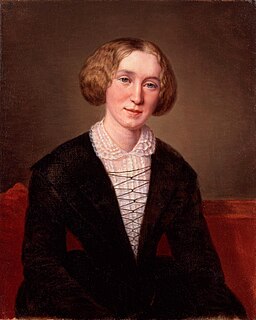
The Consolation of Philosophy is a philosophical work by Boethius, written around the year 524. It has been described as the single most important and influential work in the West on Medieval and early Renaissance Christianity, as well as the last great Western work of the Classical Period.

Quintus Ennius was a writer and poet who lived during the Roman Republic. He is often considered the father of Roman poetry. He was born in Rudiae, formerly a small town located near modern Lecce in the heel of Italy, and could speak Oscan as well as Latin and Greek. Although only fragments of his works survive, his influence in Latin literature was significant, particularly in his use of Greek literary models.
Latin literature includes the essays, histories, poems, plays, and other writings written in the Latin language. The beginning of Latin literature dates to 240 BC, when the first stage play was performed in Rome. Latin literature would flourish for the next six centuries. The classical era of Latin literature can be roughly divided into the following periods: Early Latin literature, The Golden Age, The Imperial Period and Late Antiquity.
Old English literature or Anglo-Saxon literature, encompasses literature written in Old English, in Anglo-Saxon England from the 7th century to the decades after the Norman Conquest of 1066. "Cædmon's Hymn", composed in the 7th century, according to Bede, is often considered the oldest extant poem in English, whereas the later poem, The Grave is one of the final poems written in Old English, and presents a transitional text between Old and Middle English. The Peterborough Chronicle can also be considered a late-period text, continuing into the 12th century.
Henry Vaughan was a Welsh metaphysical poet, author, translator and physician, who wrote in English. He is chiefly known for the religious poetry contained in Silex Scintillans, published in 1650, with a second part published in 1655. In 1646 his Poems, with the Tenth Satyre of Juvenal Englished was published, followed by a second volume in 1647. Meanwhile, he had been "converted" by reading the religious poet George Herbert and gave up "idle verse". The prose Mount of Olives: or, Solitary Devotions (1652) show the depth of his religious convictions and the authenticity of his poetic genius. Two more volumes of secular verse were published, ostensibly without his sanction; but it is his religious verse that has become acclaimed. He also translated short moral and religious works and two medical works in prose. At some time in the 1650s he began to practise medicine and continued to do so throughout his life.

Lucius Livius Andronicus was a Greco-Roman dramatist and epic poet of the Old Latin period. He began as an educator in the service of a noble family at Rome by translating Greek works into Latin, including Homer's Odyssey. They were meant at first as educational devices in the school he founded. He wrote works for the stage—both tragedies and comedies—which are regarded as the first dramatic works written in the Latin language of ancient Rome. His comedies were based on Greek New Comedy and featured characters in Greek costume. Thus, the Romans referred to this new genre by the term comoedia palliata. The Roman biographer Suetonius later coined the term "half-Greek" of Livius and Ennius. The genre was imitated by the next dramatists to follow in Andronicus' footsteps and on that account he is regarded as the father of Roman drama and of Latin literature in general; that is, he was the first man of letters to write in Latin. Varro, Cicero, and Horace, all men of letters during the subsequent Classical Latin period, considered Livius Andronicus to have been the originator of Latin literature. He is the earliest Roman poet whose name is known.

Gnaeus Naevius was a Roman epic poet and dramatist of the Old Latin period. He had a notable literary career at Rome until his satiric comments delivered in comedy angered the Metellus family, one of whom was consul. After a sojourn in prison he recanted and was set free by the tribunes. After a second offense he was exiled to Tunisia, where he wrote his own epitaph and committed suicide. His comedies were in the genre of Palliata Comoedia, an adaptation of Greek New Comedy. A soldier in the Punic Wars, he was highly patriotic, inventing a new genre called Praetextae Fabulae, an extension of tragedy to Roman national figures or incidents, named after the Toga praetexta worn by high officials. Of his writings there survive only fragments of several poems preserved in the citations of late ancient grammarians.

Sir Samuel Ferguson was an Irish poet, barrister, antiquarian, artist and public servant. He was an acclaimed 19th-century Irish poet, and his interest in Irish mythology and early Irish history can be seen as a forerunner of William Butler Yeats and the other poets of the Irish Literary Revival.

Prof John Stuart Blackie FRSE was a Scottish scholar and man of letters.

The history of Latin poetry can be understood as the adaptation of Greek models. The verse comedies of Plautus are considered the earliest surviving examples of Latin literature and are estimated to have been composed around 205-184 BC.
A priamel is a literary and rhetorical device found throughout Western literature and beyond, and consisting of a series of listed alternatives that serve as foils to the true subject of the poem, which is revealed in a climax. For example, Fragment 16 by the Greek poet Sappho begins with a priamel:
Edith Jemima Simcox was a British writer, trade union activist, and early feminist. She began her writing career as a reviewer, publishing criticism under the pseudonym "H. Lawrenny," including an important review of the Memoir of Jane Austen (1870). In 1875 she and Emma Paterson became the first women to attend the Trades Union Congress as delegates. She lived at 60 Dean Street, London. From 1879-1882 she was a member of the London School Board representing Westminster.
Nationality words link to articles with information on the nation's poetry or literature.
Nationality words link to articles with information on the nation's poetry or literature.
Nationality words link to articles with information on the nation's poetry or literature.
Marcus Porcius Latro was a celebrated Roman rhetorician who is considered one of the founders of scholastic rhetoric. He was born in Roman Spain, and is mentioned often in the works of his friend and contemporary Seneca the Elder, with whom he studied under Marillius.
Maximianus or Maximian was a Latin elegiac poet of the 6th century, who has been called "in some sort, the last of the Roman poets".
Nationality words link to articles with information on the nation's poetry or literature.

Poems by Julius Caesar are mentioned by several sources in antiquity. None are extant. Tacitus considered their loss a happy accident for the dictator's literary reputation:

Annales is the name of a highly fragmentary Latin epic poem written by the Roman poet Ennius in the 2nd century BC. While only snippets of the work survive today, the poem's influence on Latin literature was significant. Although written in Latin, stylistically it borrows from the Greek poetic tradition, particularly the works of Homer, and is written in dactylic hexameter. The poem was significantly larger than others from the period, and eventually comprised 18 books.













